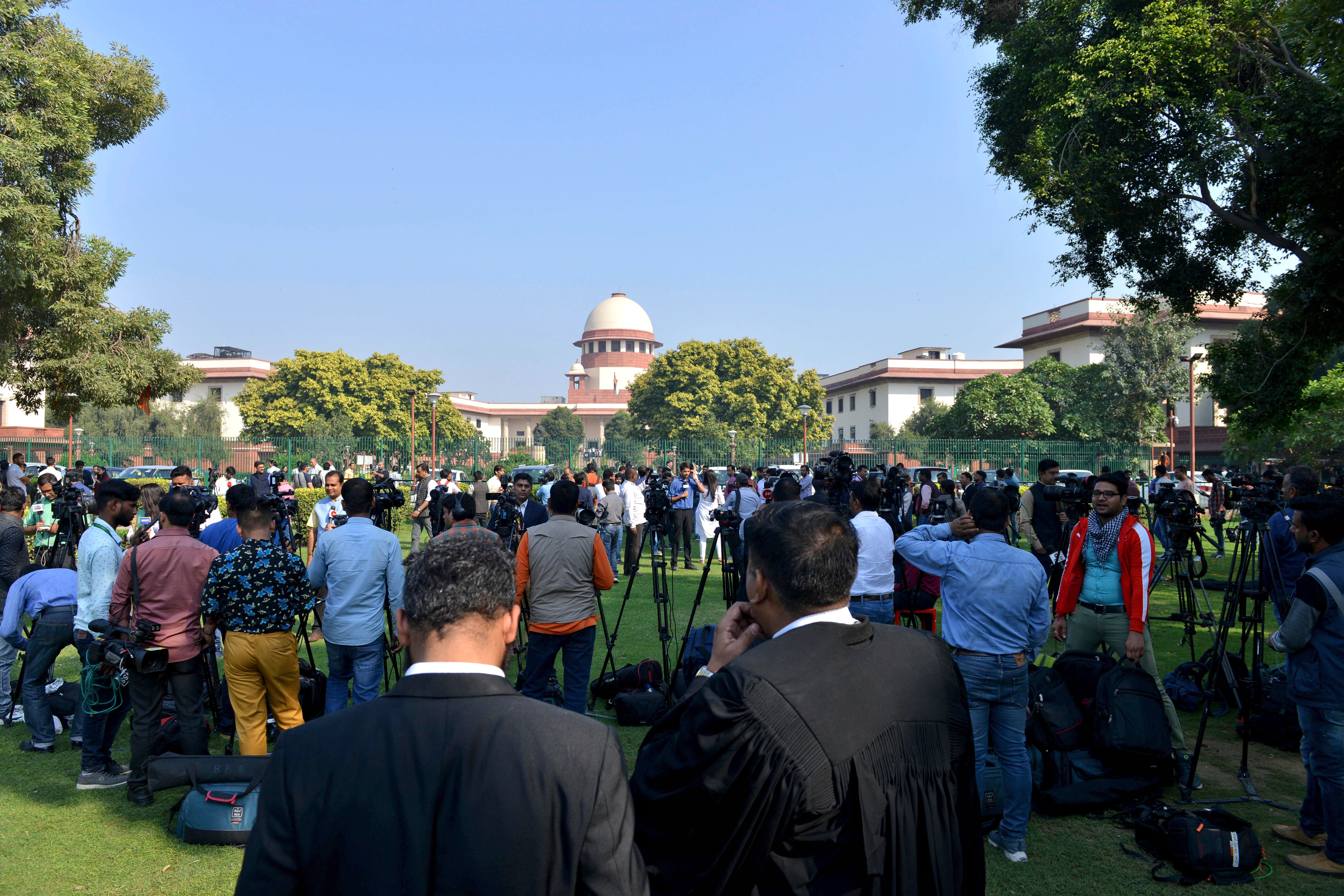India’s top court says no immunity for lawmakers accepting bribes to vote in landmark judgment
‘Corruption and bribery by members of legislatures erode probity in public life,’ says India’s top court

Your support helps us to tell the story
From reproductive rights to climate change to Big Tech, The Independent is on the ground when the story is developing. Whether it's investigating the financials of Elon Musk's pro-Trump PAC or producing our latest documentary, 'The A Word', which shines a light on the American women fighting for reproductive rights, we know how important it is to parse out the facts from the messaging.
At such a critical moment in US history, we need reporters on the ground. Your donation allows us to keep sending journalists to speak to both sides of the story.
The Independent is trusted by Americans across the entire political spectrum. And unlike many other quality news outlets, we choose not to lock Americans out of our reporting and analysis with paywalls. We believe quality journalism should be available to everyone, paid for by those who can afford it.
Your support makes all the difference.India’s top court on Monday said elected members of state assemblies and parliament can be prosecuted for accepting bribes for making speeches or casting votes in the House in a landmark verdict that overrules its 1998 judgment protecting such MPs and MLAs.
A seven-judge constitution bench of the Supreme Court observed that “corruption and bribery by members of the legislatures erode probity in public life”.
“Bribery is not protected by parliamentary privileges,” said the bench led by chief justice DY Chandrachud, as it held that corruption and bribery of members of the legislature erode the foundation of Indian parliamentary democracy.
The verdict came almost six months after the court decided to re-examine a 1998 judgment in which a 3-2 majority provided immunity to elected representatives for accepting bribes and voting or asking questions in the House.
The five-member bench at the time said that the elected members were immune to prosecution under parliamentary privileges conferred by articles of Indian Constitution.
In December, India’s parliament expelled Mahua Moitra, an opposition lawmaker and fierce critic of Mr Modi, after she was accused of taking bribes in exchange for asking questions. MP Nishikant Dubey of Mr Modi’s Bharatiya Janata Party accused her of accepting bribes from businessman Darshan Hiranandani to pose questions in parliament.
The parliament’s Ethics Committee initiated a probe after Mr Dubey wrote to Lok Sabha Speaker Om Birla, alleging bribery and impropriety against Ms Moitra.
Ms Moitra, who has denied the allegations, said she was expelled “without proof”.
The Indian Constitution lays down that no MP shall be liable to any proceedings in any court in respect of anything said or any vote given by him in parliament or any committee thereof while another corresponding provision gives immunity to members of state legislatures.
“We disagree with and overrule the judgement of the majority on this aspect,” said the bench comprising Justices A S Bopanna, M M Sundresh, P S Narasimha, J B Pardiwala, Sanjay Kumar and Manoj Misra.
Holding that the crime was complete the moment the bribe was accepted, the chief justice said, “[corruption and bribery] is destructive of the aspirations and deliberative ideals of the Constitution and creates a polity which deprives citizens of a responsible, responsive, and representative democracy.”
The court made it clear that the place of bribery, whether inside or outside, made no difference to prosecution under the Prevention of Corruption Act, opening up the doors for federal investigative agencies to initiate prosecution against the accused in bribery cases.
“Members of the legislature and persons involved in the work of the committees of the legislature must be able to exercise their free will and conscience to enrich the functionings of the House,” it held.
Welcoming the verdict, Indian prime minister Narendra Modi took to social media and said: “A great judgment by the Hon’ble Supreme Court which will ensure clean politics and deepen people’s faith in the system”.
Join our commenting forum
Join thought-provoking conversations, follow other Independent readers and see their replies
Comments